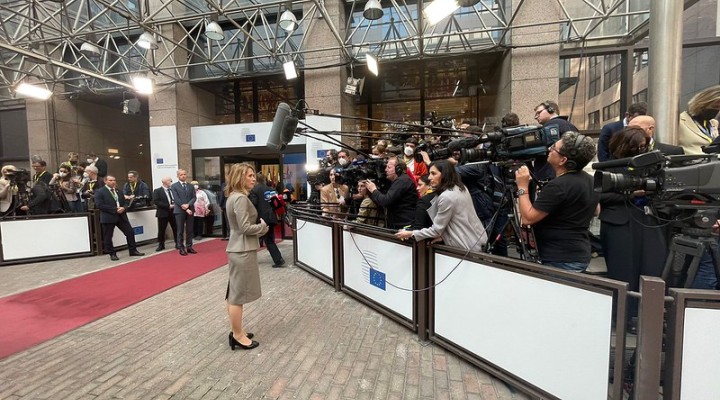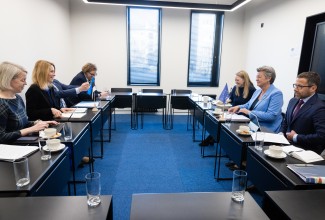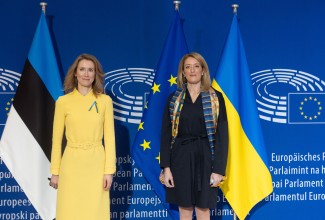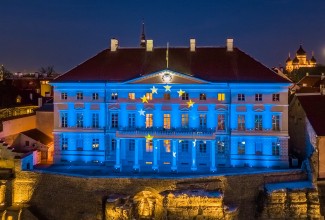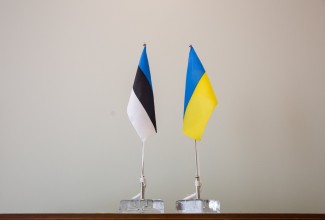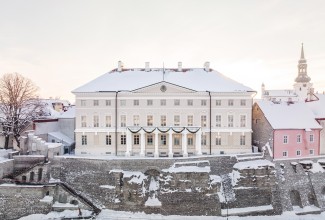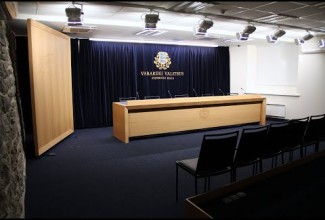According to Prime Minister Kaja Kallas, the European Council fully agrees on providing extensive support to Ukraine. “It is more than clear that the European Union as a whole supports Ukraine. We wish to do even more, to provide more military, economic, and humanitarian aid. More can be done to stop Russia and we must focus on keeping Russia under control in the long term,” said the prime minister.
According to the prime minister, the smart pacification of Russia, in addition to supporting Ukraine, means paralysing its war machine by restricting Russia’s main sources of money, such as oil and gas exports. “The European Union will cut its fossil fuel imports from Russia by two-thirds by the end of the year. I suggested, for example, suspending some oil and gas payments to be made to Russia and using these funds for rebuilding Ukraine instead. That way, Russia would build up Ukraine with its own money,” Kallas explained.
There is a clear need for a pan-European solution to help war refugees and efforts to ensure the best possible standard of living for refugees need to be shared more evenly between EU members and partners, Kallas said. “The European Commission has been tasked with proposing additional measures, as everyone understands that the number of refugees in many countries has grown faster than the means to welcome them,” the prime minister added.
The strategic compass of the European Union increases cooperation between the European Union and NATO
In addition, the leaders approved the long-term security and defence strategy, or the strategic compass, of the European Union, which sets out the defence objectives and activities of the EU for crisis management and responses in the coming years.
“It is important for Estonia that the strategy clearly acknowledges the war of Russia in Ukraine and, more broadly, the threat that Russia poses to the entire Europe. The strategic compass also covers the central role of NATO and the Transatlantic Partnership in ensuring European security and the need to support the immediate neighbourhood of the EU. The compass will guide the further activities of the European Union in enhancing its security and defence capabilities for the next five to ten years,” said the prime minister.
The strategic compass also envisages an increase in the capacity of the EU to respond to various threats and crises, such as civilian crises and hybrid attacks. “We will also renew the cyber defence policy of the EU and launch a joint cyber unit. It is important that the capabilities created by the EU support co-operation with NATO and do not change the European security architecture in a crisis situation,” Kallas said.
The European Union is starting joint energy procurements
“There is no single solution to tackling the high energy prices, as the energy dependence of the EU member states on Russia and the energy sources currently used are very different. Intervention in the functioning of the market is not good, as it results in a declining investment security and it is not a long-term solution,” the prime minister explained.
“Yet, we can accelerate renewable energy projects, diversify our supply partners, and consume energy more responsibly. We found that shared long-term contracts and procurements are a good way to get the best price and we are working with the European Commission toward these goals,” said Kallas.
Last night, the heads of state and government of Europe also talked to Volodymyr Zelenskyy, President of Ukraine. The European Council also addressed the prospect of Ukraine’s accession to the European Union mentioned at the Versailles Summit two weeks ago. “In accordance with the treaties, the European Commission must move forward with the application of Ukraine to join the EU as soon as possible,” Kallas noted.
Joe Biden, President of the United States, also attended the meeting last night. It was found that the war in Europe has brought the transatlantic allies even closer together and that cooperation in the use of sanctions against Russia has been very successful. It was agreed that the sanctions are already working, but that their widespread impact will take more time and will require strategic patience. In addition, preparations were made for next week’s EU–China summit.
Yesterday, Charles Michel was re-elected president of the European Council for 2.5 years.
